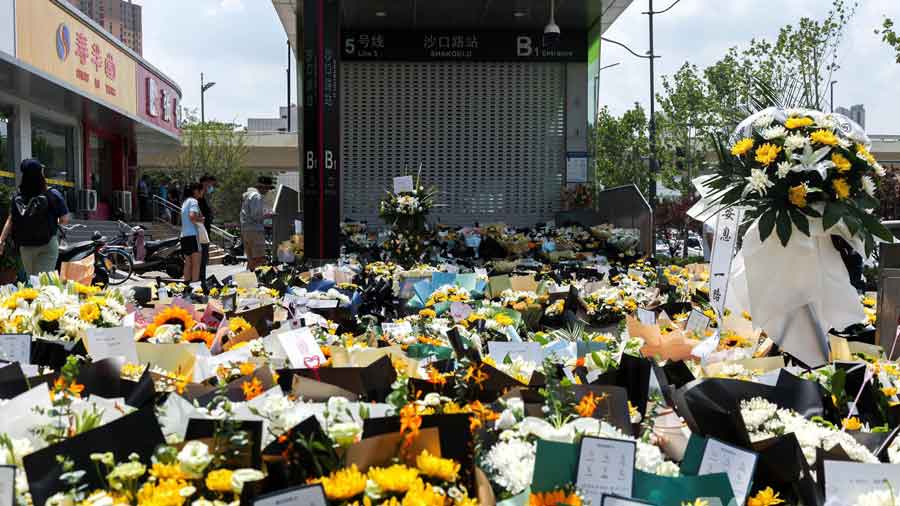Could the 12 lives lost in the flooded subway in Zhengzhou on July 20 have been saved had the decision been taken to shut down the metro line early enough? The train was stuck between two stations. Why wasn’t it stopped from leaving the station when it was clear that there were chances of the track flooding ahead? Everyone could have safely been evacuated then.
An anonymous subway worker has posted these questions in a blog post, pointing to the fatal flaw in China’s decision-making systems: no one down the line is willing to take responsibility; the order must come from the top. An Indian plant director working in China finds his senior managers asking for guidance on problems that in India would routinely be handled by executives at their level. This diffidence, he feels, is a hangover from Mao’s time, when all decisions were left to Party-led committees. When the Covid pandemic broke out in 2019, nobody dared to inform Wuhan’s residents that the new virus raging through the city was infectious till Beijing thought fit to do so.
Hostile territory
That Zhengzhou could be so badly affected is ironic, because this former capital of China and now a major centre for scientific research was one of the 16 cities prone to flooding that were chosen to become “sponge cities” in 2015. Since then, about 50 billion yuan has been spent on measures meant to equip Zhengzhou to absorb heavy rains. One netizen wrote: “Those corrupt officials absorb Moutai like a sponge every day. If they hadn’t drunk tens of billions, wouldn’t the ‘sponge city’ be built by now?”
To be fair, these were the heaviest rains in recorded history which devastated the province’s smaller cities and villages. One villager blamed a leading cement company for this, pointing to its relentless destruction of hillsides. The internet is the only place where citizens can say all this, because instructions have already been sent out to the official media to focus on post-disaster recovery, not to carry pictures of dead bodies or “take an exaggeratedly sorrowful” tone. People have been warned not to give interviews to foreign media.
More alarming, however, is the hostility displayed by some ordinary Chinese towards foreign reporters, especially the BBC’s China correspondent. A foreign ministry spokesman typically dismissed complaints from the Foreign Correspondents’ Club of China, called the BBC a “rumor broadcasting company” that put “ideology above the truth”, and said “fabricated news reports” had triggered the “public’s dissatisfaction and fury”.
In memoriam
As in India, the first to respond to the victims were locals, some of whom risked their lives to save strangers. Among those moved to help were three Uighurs who drove from Xinjiang for two days to deliver naans to Zhengzhou’s survivors, belying the myth that Uighurs hate the majority Hans.
As Zhengzhou’s residents started placing flowers and lighting candles outside the subway where the 12 people had died, barricades were put up at the entrance to stop the steady stream of mourners. That didn’t work though: the mourners removed the barricades.
The authorities also could not stop the man who’s been coming everyday to sit outside the subway wearing a blue raincoat and dark glasses, with a placard saying: “Niuniu, Dad still wants to take you home.” He was trolled on social media for “hyping” and “giving a handle to foreign forces”, till a reporter found out that ‘Raincoat Dad’s’ only daughter, herself a mother, was one of the 12 who’d died in the flooded subway. For him, time has since stood still.











